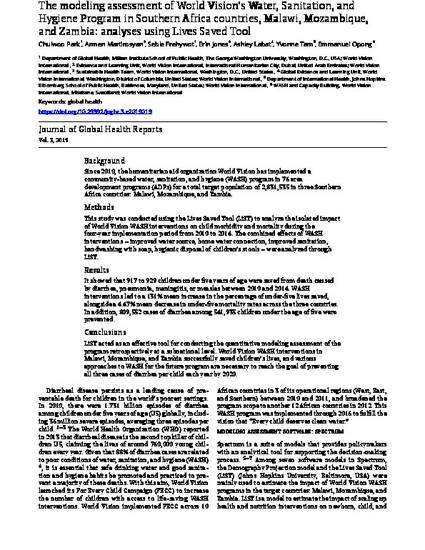
- global health
Background: Since 2010, the humanitarian aid organization World Vision has implemented a community-based water, sanitation, and hygiene (WASH) program in 76 area development programs (ADPs) for a total target population of 2,831,535 in three Southern Africa countries: Malawi, Mozambique, and Zambia.
Methods: This study was conducted using the Lives Saved Tool (LiST) to analyze the isolated impact of World Vision WASH interventions on child morbidity and mortality during the four-year implementation period from 2010 to 2014. The combined effects of WASH interventions – improved water source, home water connection, improved sanitation, handwashing with soap, hygienic disposal of children’s stools – were analyzed through LiST.
Results: It showed that 917 to 929 children under five years of age were saved from death caused by diarrhea, pneumonia, meningitis, or measles between 2010 and 2014. WASH interventions led to a 131% mean increase in the percentage of under-five lives saved, alongside a 4.47% mean decrease in under-five mortality rates across the three countries. In addition, 809,552 cases of diarrhea among 541,935 children under the age of five were prevented.
Conclusions: LiST acted as an effective tool for conducting the quantitative modeling assessment of the program retrospectively at a subnational level. World Vision WASH interventions in Malawi, Mozambique, and Zambia successfully saved children’s lives, and various approaches to WASH for the future program are necessary to reach the goal of preventing all three cases of diarrhea per child each year by 2020.
Available at: http://works.bepress.com/chulwoo-charles-park/9/

This is the Version of Record for this publication. It can also be found at this link.